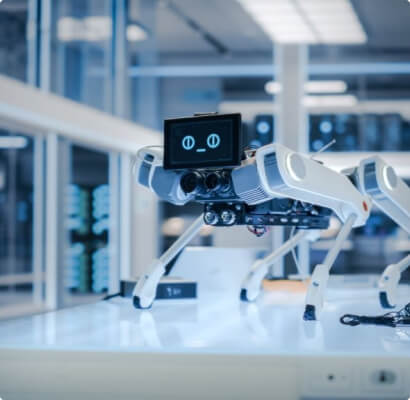The Role of AI in Smart Manufacturing and Factory Automation
Smart manufacturing is a modern approach to industrial production that relies on AI-powered automation to enhance efficiency, accuracy, and adaptability. Unlike traditional manufacturing systems that depend on static programming, AI-driven robotic automation allows for real-time adjustments and continuous process optimization.
One of the most significant advancements in factory automation is the use of autonomous robots. These AI-powered machines can independently navigate production floors, transport materials, and assemble products without requiring constant human supervision. Using LiDAR sensors, computer vision, and deep learning, these robots adapt to dynamic environments, avoiding obstacles and rerouting their paths as needed.
Another critical feature of AI in smart manufacturing is predictive analytics. AI systems analyze massive datasets from industrial sensors and IoT-connected devices to identify patterns and detect potential failures before they occur. This predictive capability reduces unplanned downtime by alerting maintenance teams before a critical failure happens, ensuring that production runs smoothly.
Additionally, AI-powered digital twins are transforming factory automation. A digital twin is a virtual replica of a physical manufacturing process, allowing engineers to simulate and optimize production workflows in real-time. AI algorithms analyze digital twin data to suggest workflow improvements, test new production strategies, and minimize inefficiencies without disrupting actual production lines.
AI-driven automated quality control systems also enhance manufacturing precision. These systems use machine learning and computer vision to inspect products for defects, ensuring that only high-quality goods reach consumers. In industries such as electronics and pharmaceuticals, where product consistency is crucial, AI-powered inspection systems help eliminate defective products while maintaining high-speed production rates.
By integrating AI into smart manufacturing and factory automation, industries are achieving higher efficiency, reducing costs, and increasing production quality. AI-driven automation is reshaping industrial production, making factories more agile, intelligent, and responsive to market demands.

